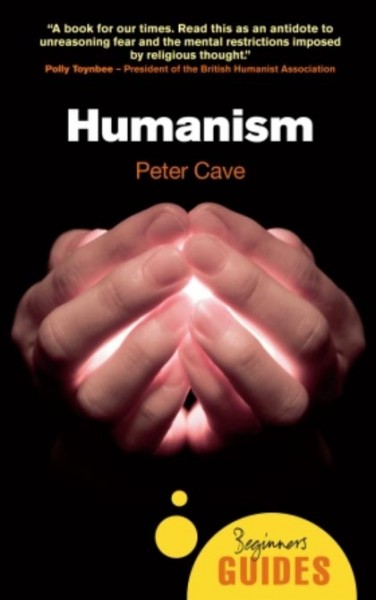 Written by TLC
Written by TLC
Humanism is an inherently attractive word. It immediately connects to us because its root is ‘human’. However, it is often not understood at all. Some religious people view it as a pagan cult and some with disdain simply because it stands opposed to religion. Even freethinkers may only have some fuzzy ideas about what humanism is about. Humanism, at its core, is a simple approach to life (without gods). It is about learning about humanity and being human. That is all there is. In practice, we have often to pause and wonder how best to deal with situations and problems especially those in which we know that there is a right way and a wrong way of dealing with them. Many of these rights and wrongs do not merely concern correct or incorrect action and reaction – they involve morality and immorality. In this book, Peter Cave explains what to be human means from the point of view of a humanist.
Cave sets the stage by pointing out the most obvious description of what humanists are. We are all atheists, but he reminds us that the ‘we’ include theists because the Buddhist is an atheist so far as the Christian God is concerned, and the Christian is an atheist so far as any other god is concerned. Humanists know too well that humans can be cruel and nasty, and that is one reason, Cave says, that humanists ‘encourage humanism’. It is to promote the good features of humanity. Hence, throughout the book, he raises philosophical discussions about the moral way to live. There are and will always be difficult questions whenever morality and ethics are concerned, but the humanist does not evade them. He thinks through such difficulties, and makes a choice, but it will have to be a choice made with reason. In this respect, the humanist’s decisions will be clearer, more consistent, and less complicated as they are reached by reason, without the illogical, absurd, and contradictory religious dictates of religion. Why that is so is partially explained in chapters 2 and 3 in which Cave shows not only why a belief in a theistic being is illogical and absurd, but that ‘God’ has no relevance to moral behavior. What makes killing wrong ‘does not hang on God but on life’s value’. Cave also explains what morality is (from the humanist point of view) in chapters 4 to 6.
Chapter 6, in particular, is an absorbing and an inspiring chapter about dying and living. It is an important chapter because many turn to religion because they have no other way of dealing with life and death. The humanist has no need to turn to any god for this very real and practical aspect of human life. Chapter 7 extends this inquiry into the different ways a theist and a humanist understands the notion of ‘the meaning of life’. Citing Thomas Nagle, Cave reminds us that ‘a mouse’s life is not absurd; a human life is. A mouse’s life contains no incongruity; a human’s does.’ Yet we scurry about worrying about small things such as whether our hair-style is right. Humanism brings us down to earth. ‘We humanists know we shall cease to exist, yet we believe the world goes on. We build monuments, preserve libraries and save whales, when all will be lost’, Cave says. Yet we do it willingly, knowingly, and happily. We do it because that is what being human is about; we do not do it because an imaginary being thinks we ought to do it. We do it for the sake of the act and the object of the act, not for the sake of a divine being. As Cave says in the last line of his book, ‘Let us be human. What else can we be?’




